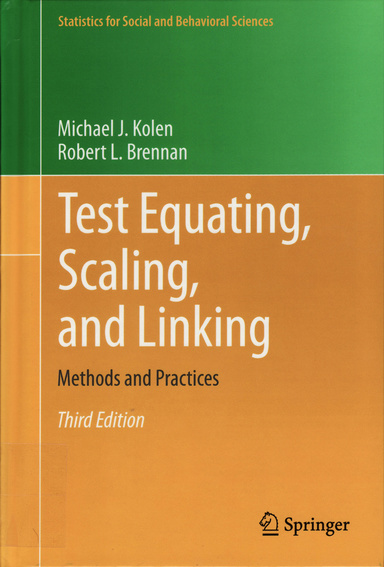
Two University of Iowa College of Education professors, Michael Kolen and Robert L. Brennan, have collaborated to publish a third edition of the book examining critical concepts in the field of testing: Test Equating, Scaling, and Linking.
Kolen is a professor of Educational Measurement and Statistics in the Department of Psychological and Quantitative Foundations. Brennan, the Lindquist Chair in Measurement and Testing, is co-director of the College of Education’s Center for Advanced Studies in Measurement and Assessment.

The book, which involves many aspects of testing, including procedures to develop tests, administer and score tests, and interpret scores earned on tests, is the result of more than 25 years of work. The first edition was released in 1994. The second was published in 2004.
“Nearly every testing program you would recognize deals with these issues of equating, scaling, and linking,” Brennan says. “This book covers virtually all of the procedures that are currently used throughout the world.”
Test equating methods are used with many standardized tests in education and psychology to ensure that scores from multiple test forms can be used interchangeably. Test scaling is the process of developing score scales that are used when scores on standardized tests are reported. In test linking, scores from two or more tests are related to one another. Linking has received much recent attention, due largely to investigations of linking similarly named tests from different test publishers or tests constructed for different purposes. A significant addition to the third edition is coverage of the latest research. Some of this new research is about computer-based administration of exams and the international uses of testing.
“There is currently no more up-to-date literature review of the field than what exists in this book,” says Brennan.
Kolen and Brennan’s book offers important implications for research and policy makers in education, psychology, and statistics.
“This book is not only for testing programs like the ACT and the SAT. It also impacts the MCAT, the LSAT, and the vast majority of national and international standardized tests,” Kolen says. “Testing happens so frequently now, the need for this book only grows.”